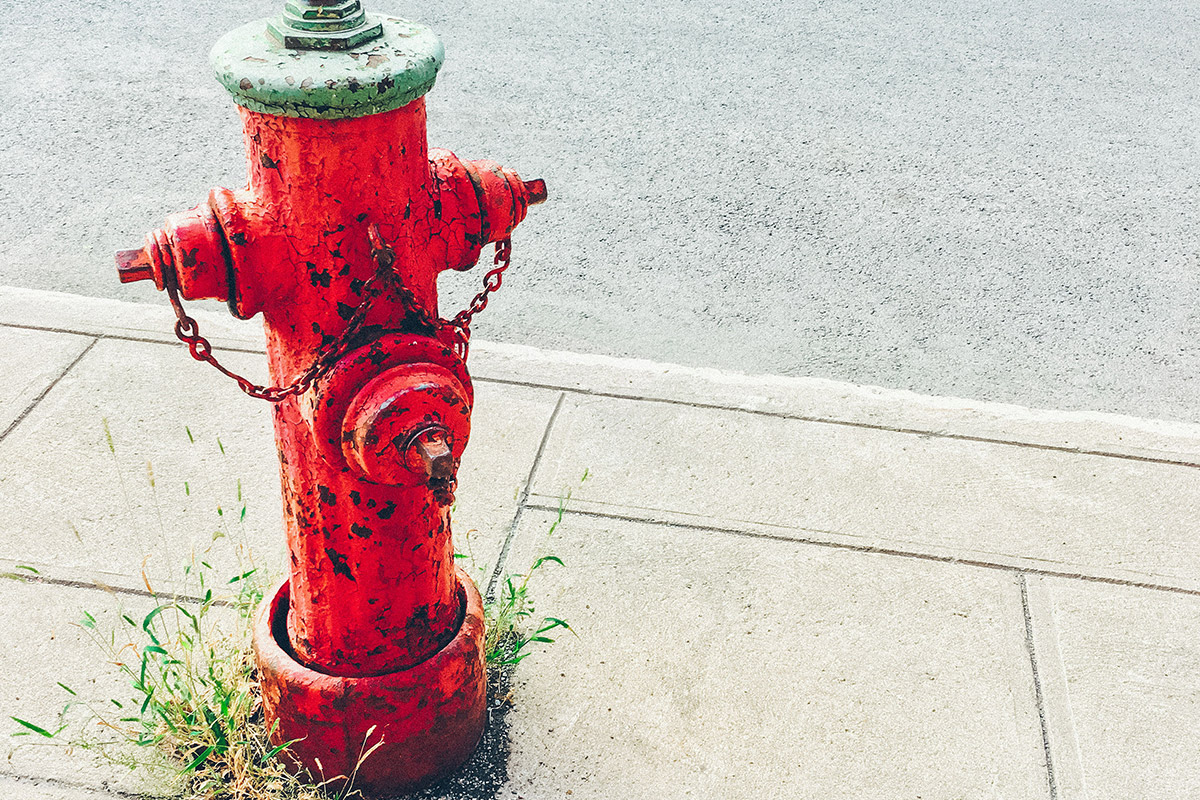
In Case of a Wildfire-Are You Prepared?
This is an article from our friends at Leavitt Group.
Imagine this … you’re in your backyard grilling dinner with your family, enjoying your day off. The weather is beautifully warm and the steak is grilling to perfection. It’s the ultimate way to unwind from a long week at work. But when you look up at the sky, you notice there’s a lot more smoke than there should be—and it’s not just coming from the grill!
All of a sudden, fear sets in. There’s a fire somewhere, but you don’t really know how close it is. Is your home in danger? You saw the news about the wildfire a few towns over—could it already be spreading here? You tell your kids not to worry, that it probably won’t get close. Nevertheless, your worst fears are confirmed that night with an emergency alert on your phone: “Fire warning—Evacuate immediately.”
Though many people think this situation will never happen to them, the chance of a fire impacting your community is more likely than you think. According to the Insurance Information Institute, from January 1 to September 11, 2017, there were 42,369 wildfires in the United States, destroying 8.2 million acres.
These fires aren’t just in the middle of nowhere. Property losses from wildfires reached nearly $1.5 billion in 2015. There are homes at risk in every state. More than two million households in California are at high risk from wildfires. In Montana, the number of high risk households is 28%.
Every year, wildfires devastate homes, businesses and belongings. What would you do in this situation? What can you do now to prepare for it? Fortunately, there are some simple steps you can take to protect yourself and your belongings from wildfire.
Review your homeowners insurance coverage
The amount of coverage you have should be enough to rebuild your home and replace your belongings in case of a total loss. Talk with your agent to make sure your current coverage is enough.
Do you have a vehicle, boat, ATV or recreational vehicle that isn’t insured on its own policy? Homeowners insurance policies will often exclude or otherwise severely restrict coverage on these types of vehicles. Find the right policy to protect these vehicles by talking with your agent.
If you are renting your living space, be sure to ask your agent about renters insurance.
Inventory your belongings
If your house burns down, your homeowners or renters insurance policy will pay the cost to replace your personal belongings. That can be a lot of stuff! Often, the hardest part of the claims process is remembering what needs to be replaced. Catalog your personal belongings now to save yourself stress in an already stressful situation. Be sure to record receipts, purchase dates and appraisals if you have them. If you don’t want to write down all of your items, take a video. Go through cabinets, closets, garages and attics. Be sure to save the video online or away from your home so it doesn’t get destroyed in the fire.
If you want help doing an inventory, check out Safeco’s free home inventory app.
Take steps to protect your home
There are things you can do to reduce the chances of your home being destroyed by fire. Choose fire resistant plants and trees for your yard, keep your roof and yard clean of debris and cut grass and weeds short. If you have any wood piles, make sure they are stacked at least 30 feet from your home or any other buildings. If you receive an evacuation order, turn off gas valves and pilot lights before you leave.
Some insurance carriers offer wildfire defense programs for additional home protection. These programs can send crews to remove overgrown vegetation, fuel tanks or other highly-flammable items. They may even apply fire-blocking gel to your home. Some policies will require your participation in these programs. Ask your agent if this is something your insurance carrier offers.
Always remember that the safety of you and your family comes first. In an emergency, evacuate as quickly as you can and don’t return to the site until authorities assure you it is safe.
Take what you need, leave what you don’t
It’s a good idea to have some things ready at a moment’s notice. Prepare a 72-hour emergency kit with blankets, non-perishable food, first aid supplies, water and extra cash. Depending on the location and severity of the fire, it may be hard to find a place to stay quickly. For tips on building a 72-hour kit, click here.
Have your important documents stored and easily accessible. While birth certificates, social security cards, titles and deeds can be replaced, you’ll save yourself a lot of hassle and paperwork if these documents go with you.
Don’t forget about sentimental items. Your insurance policy will pay to replace your belongings, but some things are irreplaceable. Pets, trophies, wedding photos/memorabilia, artwork, letters, journals and heirlooms are good examples of things that can’t be replaced by dollar signs. Make a list of these items now instead of trying to think of everything when the evacuation order comes.
You may not be able to take everything you want, so be sure to list the items that are most important to you first. Leave everything else. Don’t let your personal belongings get in the way of your personal safety.
Now, let’s think back to our opening scenario. The unthinkable is happening. You have to leave your home, knowing it could be gone when you get back. But you’ve taken the steps to protect it. You’ve done all you can and have peace of mind knowing that your family’s financial stability won’t be compromised. Everything will be okay.
Interested in updating your homeowners insurance? Mountain America Credit Union has plenty of options to make sure you’re covered. Contact us today for more information and a free quote.
Source: www.iii.org


